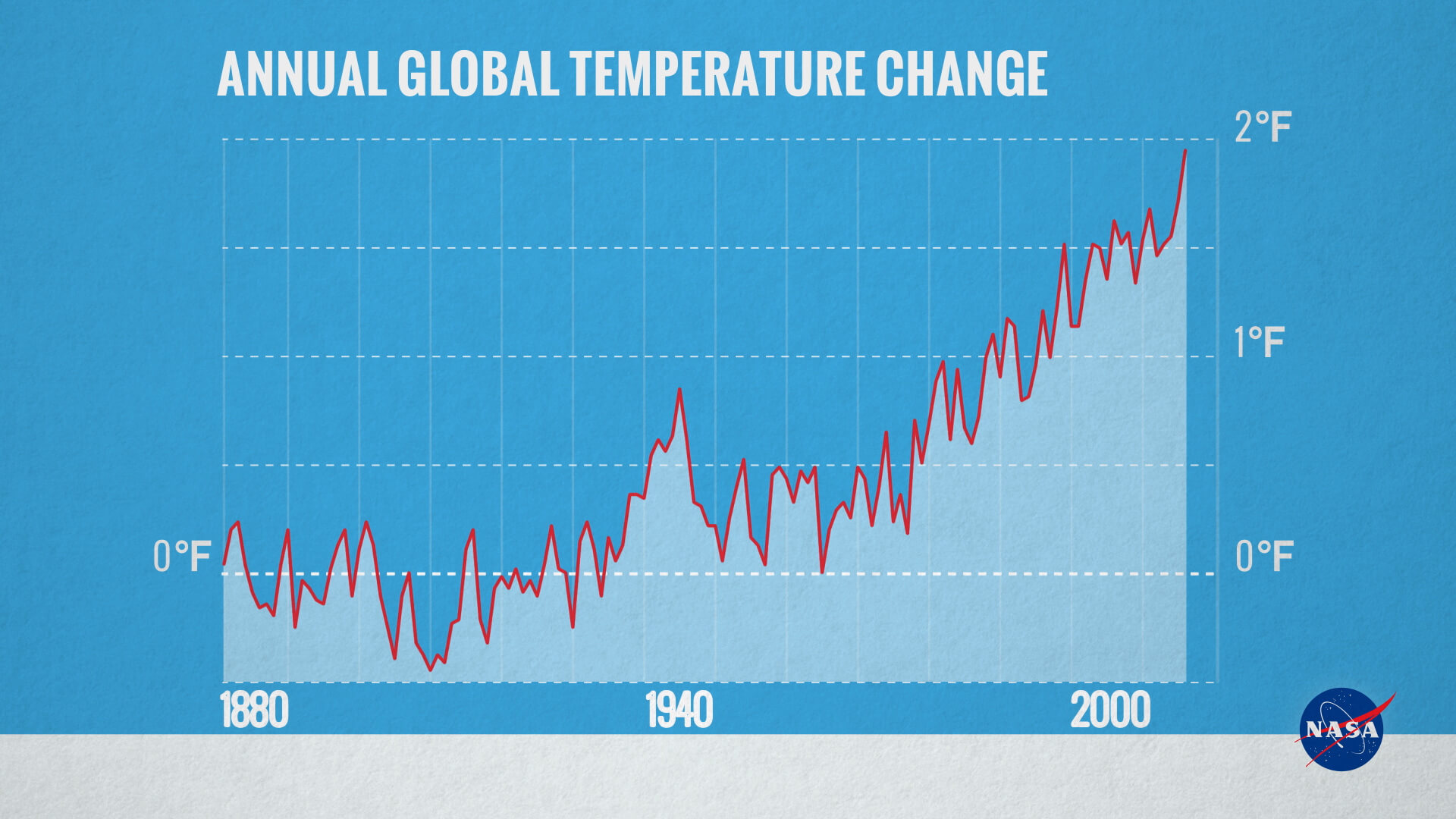

Some parts of Earth are warming faster than others. But on average, global air temperatures near Earth's surface have gone up about 2 degrees Fahrenheit in the past 100 years. In fact, the past five years have been the warmest five years in centuries.
Many people, including scientists, are concerned about this warming. As Earth’s climate continues to warm, the intensity and amount of rainfall during storms such as hurricanes is expected to increase. Droughts and heat waves are also expected to become more intense as the climate warms.
When the whole Earth’s temperature changes by one or two degrees, that change can have big impacts on the health of Earth's plants and animals, too.

We can't take Earth's temperature directly, but we do have a lot of information from weather stations, ocean buoys and remote sensing instruments. The information lets us see changes in climate. Credit: NASA/JPL-Caltech
Scientists have been observing Earth for a long time. They use NASA satellites and other instruments to collect many types of information about Earth's land, atmosphere, ocean and ice. This information tells us that Earth's climate is getting warmer.
Why is Earth getting Warmer?
Extra greenhouse gases in our atmosphere are the main reason that Earth is getting warmer. Greenhouse gases, such as carbon dioxide (CO2) and methane, trap the Sun's heat in Earth's atmosphere.
It's normal for there to be some greenhouse gases in our atmosphere. They help keep Earth warm enough to live on. But too many greenhouse gases can cause too much warming.
The burning of fossil fuels like coal and oil increase the amount of CO2 in our air. This happens because the burning process combines carbon with oxygen in the air to make CO2.
It's important that we monitor CO2 levels, because too much CO2 can cause too much warming on Earth. Several NASA missions have instruments that study CO2 in the atmosphere.
Why does it matter that the earth's climate is changing?
Over millions of years, Earth's climate has warmed up and cooled down many times. However, today the planet is warming much faster than it has over human history.
Global air temperatures near Earth's surface have gone up about 2 degrees Fahrenheit in the last century. In fact, the past five years have been the warmest five years in centuries.
One-and-a-half degrees may not seem like much. However, this change can have big impacts on the health of Earth's plants and animals.
(https://climatekids.nasa.gov/climate-change-evidence/)